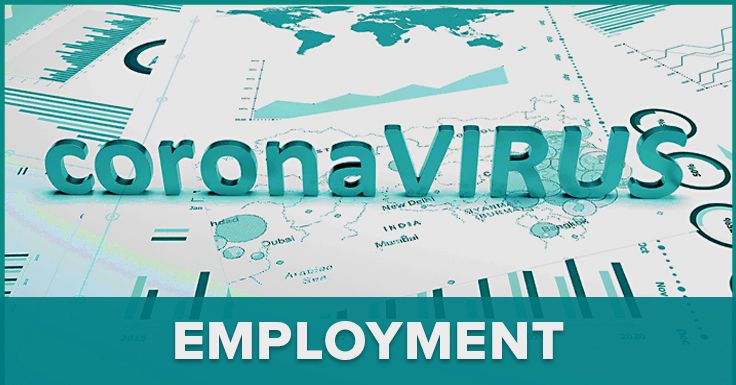
Michigan Labor & Employment Law Blog
Attorney Cliff Hammond addresses issues facing Michigan employers amidst the COVID-19 epidemic during an interview with mConnexions' Principal Strategist, Julie Holton. Hammond covers topics such as the new Families First Coronavirus Response Act, as well as the Michigan Stay Safe, Stay Home Executive Order and what these new rules mean for employers. You can view the entire interview below. Please visit our Coronavirus Task Force page for more resources related to this ongoing situation.
 The COVID-19 pandemic and the recent Executive Order 2020-21 has raised many questions for employers across the state. Foster Swift is ready and able to assist any business in making the determination about whether it is exempt, or to answer any other questions you may have regarding the impact of COVID-19 on your business. With the uncertainty and partial information surrounding the Coronavirus, consider the following articles and interview for relevant and accurate updates:
The COVID-19 pandemic and the recent Executive Order 2020-21 has raised many questions for employers across the state. Foster Swift is ready and able to assist any business in making the determination about whether it is exempt, or to answer any other questions you may have regarding the impact of COVID-19 on your business. With the uncertainty and partial information surrounding the Coronavirus, consider the following articles and interview for relevant and accurate updates:
- Update to the Families First Coronavirus Response Act
- COVID-19 Legal Issues for Employers
- Families First Coronavirus Response Act - Division E-Emergency Paid Sick Leave Act
- How Does Coronavirus Impact your Contracts?
- Michigan Employers - FAQs on Coronavirus and your Employees
- Clifford Hammond mConnexions Interview
 Conducting a workplace investigation is a challenging and risk-filled endeavor for Michigan employers. Done right, an investigation can unearth important information that can help bring an end to deleterious behavior—or affirm that nothing unlawful or improper is or was taking place. In either case, an investigation can restore trust and credibility internally and externally. Done poorly, an investigation erodes trust and can result in legal and financial consequences, loss of employee morale, and reputational damage.
Conducting a workplace investigation is a challenging and risk-filled endeavor for Michigan employers. Done right, an investigation can unearth important information that can help bring an end to deleterious behavior—or affirm that nothing unlawful or improper is or was taking place. In either case, an investigation can restore trust and credibility internally and externally. Done poorly, an investigation erodes trust and can result in legal and financial consequences, loss of employee morale, and reputational damage.
 In the past, background checks on prospective employees were done as a matter of course by employers. The only real risk employers faced was missing a red flag in a candidate’s background, resulting in a poor hiring decision.
In the past, background checks on prospective employees were done as a matter of course by employers. The only real risk employers faced was missing a red flag in a candidate’s background, resulting in a poor hiring decision.
 In today’s tight job market, businesses must recruit aggressively to attract talent. However, without a clear and compliant hiring process in place, and well-trained employees to implement the process, an employer’s hiring practices can open it up to significant liability.
In today’s tight job market, businesses must recruit aggressively to attract talent. However, without a clear and compliant hiring process in place, and well-trained employees to implement the process, an employer’s hiring practices can open it up to significant liability.
 Disciplining, terminating or laying off employees can be a traumatic experience. It is traumatic for the employee because it involves criticism for not performing acceptably and/or causing potential financial burdens because the paycheck has stopped.
Disciplining, terminating or laying off employees can be a traumatic experience. It is traumatic for the employee because it involves criticism for not performing acceptably and/or causing potential financial burdens because the paycheck has stopped.
 On June 21, 2018, the U.S. Department of Labor (“DOL”) issued final regulations that expanded the availability of association health plans ("AHPs"). Those regulations (the "AHP Rules") were summarized in our previous blog article. An AHP is an arrangement that allows small businesses to band together to obtain healthcare coverage as if they were a single large employer.
On June 21, 2018, the U.S. Department of Labor (“DOL”) issued final regulations that expanded the availability of association health plans ("AHPs"). Those regulations (the "AHP Rules") were summarized in our previous blog article. An AHP is an arrangement that allows small businesses to band together to obtain healthcare coverage as if they were a single large employer.
 Preventing theft, avoiding frivolous lawsuits, increasing productivity, and improving workplace safety: these are all important objectives that employers in Michigan hope to achieve through monitoring their workers and work environments often with video surveillance. While video surveillance can be an important asset for an employer, it can also lead to liability if your surveillance program runs afoul of the law.
Preventing theft, avoiding frivolous lawsuits, increasing productivity, and improving workplace safety: these are all important objectives that employers in Michigan hope to achieve through monitoring their workers and work environments often with video surveillance. While video surveillance can be an important asset for an employer, it can also lead to liability if your surveillance program runs afoul of the law.
 Employers have known for a long time the legal implications of harassment in the workplace. And, while bullying gets considerable attention in schools, it is only now starting to gain attention in the workplace. But employers must be aware that ignoring bullying in the workplace may also expose them to significant legal liability.
Employers have known for a long time the legal implications of harassment in the workplace. And, while bullying gets considerable attention in schools, it is only now starting to gain attention in the workplace. But employers must be aware that ignoring bullying in the workplace may also expose them to significant legal liability.
 On December 14, 2018, Governor Snyder signed into law the Paid Medical Leave Act ("PMLA"), which requires certain Michigan employers to provide paid medical leave to eligible employees.
On December 14, 2018, Governor Snyder signed into law the Paid Medical Leave Act ("PMLA"), which requires certain Michigan employers to provide paid medical leave to eligible employees.
